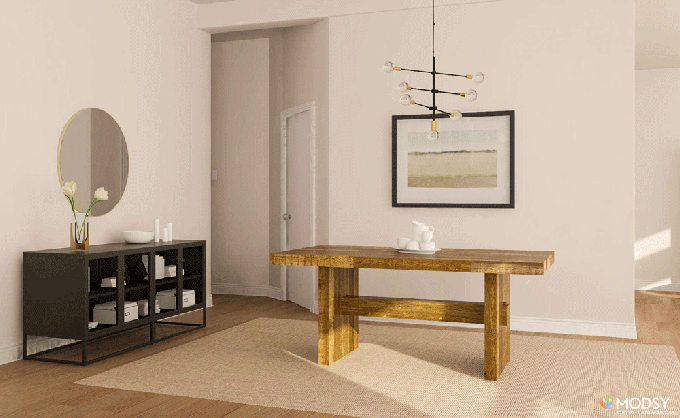Modsy's CEO explains how she conquered the VC 'boys' club'

Female-owned businesses account for 39% of all U.S. companies. Yet, venture-backed companies with women at the helm remain painfully low. Only 2.7% have a female CEO, according to a Babson College study.
Meanwhile, the broader VC landscape has been overwhelmingly positive for entrepreneurs. Startups have received the most venture capital since the early 2000s. The VC community invested a total of $84 billion across 8,096 deals, according to a new report from Pitchbook and the National Venture Capital Association (NVCA).
“The men who have been successful are part of the boys club. It’s something that’s repeated a lot because it’s true,” Shanna Tellerman, founder and CEO of Modsy, told Yahoo Finance. “They went to college, b-school, were coworkers and hang out on the weekends together. They develop this natural mentor-mentee relationship. It’s a much more casual and true bond.”
A standout story
Tellerman, 36, has been able to rise above the boys club effect. In December, her 3D home decorating tool startup closed a $23 million Series B round, bringing total funding to $33.75 million. New investors include NBCUniversal and Comcast Ventures, which has led to partnerships with brands like Bravo.
Upon submitting photos and measurements for the room you want to redecorate, Modsy will send you an empty 3D version with a few design concepts. From there, you can customize the space and make the rendering a reality.
All of the products are available for purchase directly through Modsy, which has partnered with more than 100 retailers, ranging from CB2 to Target. Modsy receives an upfront fee of total cost per customer and shares revenue from the merchandise that consumers purchase from retailers.

The Modsy approach
While there are several other players in the space, Modsy is certainly an industry leader. Yahoo Finance previously covered Hutch, a free, more rudimentary interior design app that lets you swipe through possible options.
As we witness the rise of 3D and AR technology, Modsy is finding its sweet spot. While the company doesn’t disclose exact numbers, Tellerman told Yahoo Finance that Modsy has tens of thousands of customers. There’s a two-tier pricing model — $69 per room for the basic service and $199 per room to access a style adviser who can provide personalized tips and recommendations.

Modsy harnesses Tellerman’s strengths, which lie at the intersection of 3D and design. After receiving both a masters in entertainment technology and a BFA from Carnegie Mellon University, she founded and served as CEO of Wild Pockets (formerly known as Sim Ops Studios), which was acquired by Autodesk (ADSK) in 2010.
Tellerman’s sound technical expertise coupled with the ability to remain nimble have been the foundation of her success.
Of course, it was extremely helpful to have experience creating a company that had a successful exit. Plus, after leaving Autodesk she joined Google Ventures as a partner for two years, getting a chance to learn more about the startup process of pitching and attracting investors.
Perhaps the biggest challenge for entrepreneurs is timing the market, according to Tellerman.
“You don’t want to be too late and the market is flooded. And you can’t be so early that you’re such an early mover. But, if you time it well, you’ll see growing momentum around your industry,” she said.
“My buddies weren’t starting businesses”
While Tellerman has been able to navigate the venture capital world with seeming ease, she says her biggest inhibitor was the lack of a strong network.
“When you’re an investor, that network leads to your deal flow,” she said. “When you’re an entrepreneur, it leads to investors. Women have not had the same advantage.”
While it’s a well-understood reality, the depth to which this bro culture exists in tech continues to reveal itself. Bloomberg Technology host Emily Chang’s forthcoming book, Brotopia, aims to showcase just how much power men wield in the Valley.
Especially during her stint at Google Ventures, Tellerman couldn’t believe just how few women were on either side of the table.
“My [female] buddies weren’t starting businesses. And those who were had to work twice as hard to find deals. In starting both companies, I leaned really heavily on the network of men and women I did have — they were some of my first investors,” she said.
Of course, it begins with coalition building. Last fall, a group of female venture capitalists launched free, quarterly office hours for female founders.
Tellerman acknowledges that’s the first step and she makes a concerted effort to share her knowledge and spread the wealth with female entrepreneurs.
“We have to build that network, it’s a conscious activity. I’ve done a lot to build those bridges,” she said.
Melody Hahm is a senior writer at Yahoo Finance, covering entrepreneurship, technology and real estate. Follow her on Twitter @melodyhahm.
Read more:

